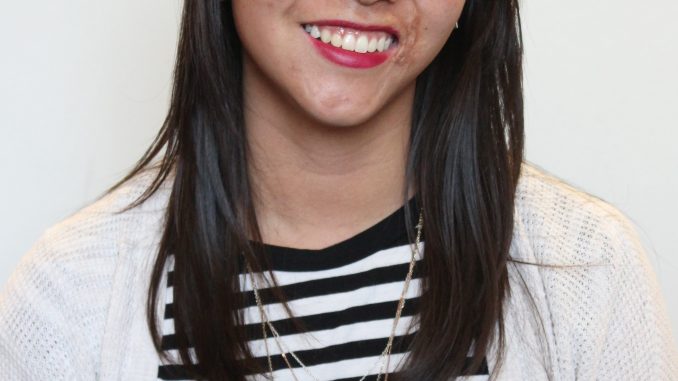
 When I first went to a study away session on the second floor of Tuttleman Learning Center in my freshman year, I was brimming with excitement and optimism. “I can go anywhere I want,” I told myself. “I can go to London in my sophomore year and South Africa in my summer between junior and senior year and experience those once-in-a-lifetime college things people always talk about!”
When I first went to a study away session on the second floor of Tuttleman Learning Center in my freshman year, I was brimming with excitement and optimism. “I can go anywhere I want,” I told myself. “I can go to London in my sophomore year and South Africa in my summer between junior and senior year and experience those once-in-a-lifetime college things people always talk about!”
My naive optimism plummeted when I sat down with my mother this summer, spreadsheets laid out on the couch, to discuss what a semester abroad in London would actually mean for my family and I’s bank account.
I was shaken by the numbers those carefully color-coded spreadsheets presented. How could I not have seen this coming? Was this a personal failure to do my research properly, or was it an oversight by the department by not disclosing all the dirty details of the cost upfront?
The answer, as it turns out, falls somewhere in the middle.
The School of Media and Communication’s website has 150 pages, 120 of which are dedicated to Study Away information. The Study Away information sessions begin with the most basic, “Intro to Study Away,” then filter down to program-specific sessions, into “Financing Study Away” and “Scholarships for Study Away,” each held on a different day. There are academic and financial advisers, pamphlets and printouts. The resources are numerous and, quite frankly, overwhelming.
I was swept up in the promise that tuition would remain the same from a semester at Temple to a semester abroad, the fifty plus list of scholarships I wasn’t sure I qualified for, but left with a list of costs racking up and no idea where to start.
Senior journalism major Amber Connally attended the London summer program this past summer, said she had similar issues.
“I was surprised by the costs because you have to pay out of pocket, you don’t get financial aid, so I had to pretty much raise the money by myself,” she said. “In the beginning, Temple was not clear on how much it was. I had to go to the Bursar’s Office by myself and find out the exact cost, because they kept saying ‘between this and this, and depending on this and this,’ and weren’t too specific; that wasn’t enough for me and my mother. We needed to know the exact amount and how much we needed to raise and needed to come up so we don’t have any leftover fees when the fall starts.”
Connally was awarded two scholarships from outside the university and one from the program. She also raised funds through bake sales and GoFundMe.
Senior journalism major Taylor Calta attended the London 2015 spring semester. She said she didn’t apply for any scholarships and paid for her trip with her personal savings and a loan.
“I wish I had applied for scholarships because I’m paying for it now,” she said.
Calta said the study away office presented all the information well, but she did have to ask for more information concerning exchange rate and personal spending amounts.
“What they tell you is really what it is,” she said. “It’s a lot, but it’s worth it.”
Lezlie McCabe, associate director for Study Away, said students come into her office, in the midst of the application process, who have no real idea of the costs.
The study away office has recently taken steps to “almost force” students to be prepared, McCabe said.
The study away website has been redesigned to make navigation easier. Computers have been added to the study abroad office so students can follow along throughout information sessions. Students take a survey that gauges what they are most concerned about when they sign up for an information session. The application itself even asks students how much they think the program will cost and how they’ll be paying for it.
“We proactively try to help students understand the costs,” McCabe said. “If we can prevent a problem before it starts, we certainly try to do that. Essentially what it comes down to is I don’t think there’s any way for a student to plan without looking at every funding option.”
The problem I faced when staring at those spreadsheets is not being unaware of the costs, but rather not knowing what every funding option is.
“There’s a lot of [scholarship] money out there that goes unused or without competition,” McCabe said. “I think the school needs a resource for that.”
Dana Dawson is program director for scholar development and fellowship advising, but she is only one person working for every undergraduate in the university, not just study away students.
What the study away program needs is an adviser specifically for scholarship searching and matching, with a master list of deadlines and clearly explaining eligibility for each financial opportunity.
With such a resource, I wouldn’t feel so overwhelmed with the 120 pages of Study Away information and seemingly endless application, and the spreadsheets would make my London semester seem less like an impossible pipe dream and more like a goal to be conquered.
Lian Parsons can be reached at lian.parsons@temple.edu.



Be the first to comment